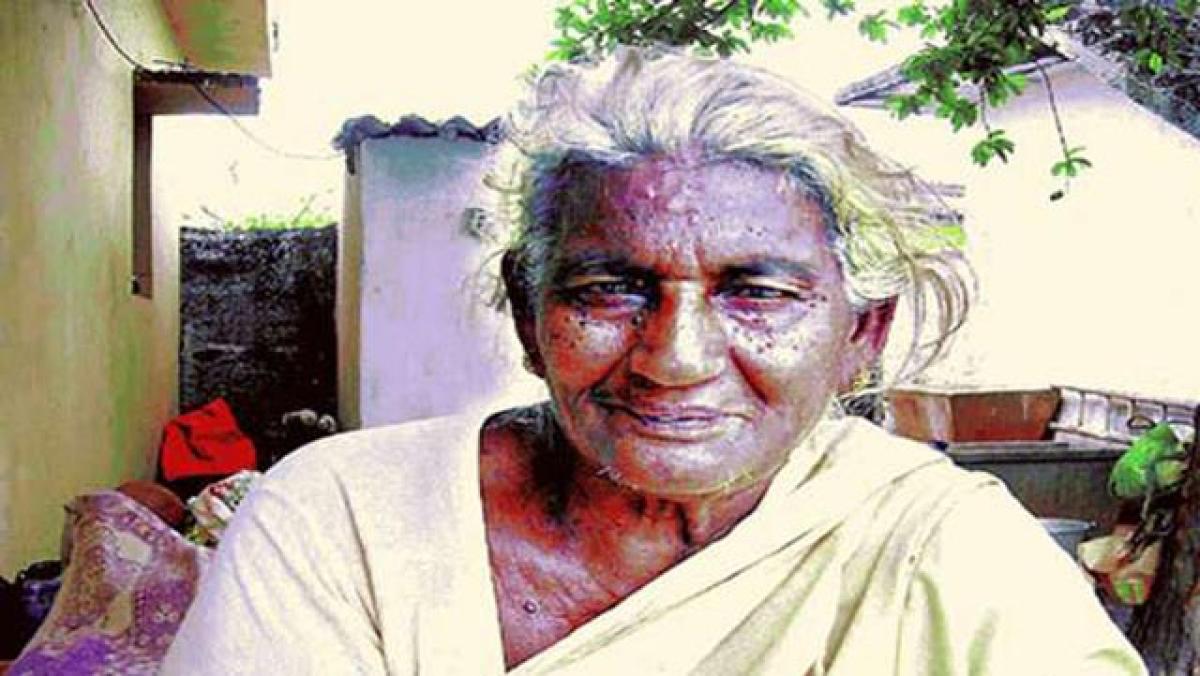Live
- 3-member committee formed to solve RTC workers’ issues
- TG Planning Board V-C emphasises on ensuring food security
- Hyderabad: Radha Govinda Rath Yatra tomorrow
- CM Revanth meets Union Education Min, seeks Kendriya Vidyalayas for TG
- Revanth requests Kishan Reddy for Rs 1.63 lakh cr financial help from Centre
- ‘Lift cases against Beela agitators’
- ISRO successfully tests CE20 cryogenic engine
- OU conducts seminar on critical minerals
- Hyd’bad CP issues guidelines for New Year celebrations
- OU launches free UGC NET Paper-I training prog
Just In

Dubagunta Rosamma, the woman who led the famous anti-liquor movement in the united Andhra Pradesh in the 1990s, died on Sunday. She was 93. According to family members, she died of ill health in her village Dubagunta in Nellore district.
Vijayawada: Dubagunta Rosamma, the woman who led the famous anti-liquor movement in the united Andhra Pradesh in the 1990s, died on Sunday. She was 93. According to family members, she died of ill health in her village Dubagunta in Nellore district.
Her real name was Vardhineni Rosamma but she became famous as Dubagunta Rosamma after the village became famous for the women's movement against arrack, a low-cost local liquor that is generally consumed by poor people.
Rosamma actively took part in adult literacy programme organised by then District Collector K Raju. Along with neo-literate women of the region, she launched the fight after two adult literacy programme employees were abused by a couple of drunken villagers in 1992.
The women's movement highlighted their sufferings as the men were resorting to violence against women and spending a major part of their income on arrack. Armed with broomsticks, chilli powder and sticks, the women attacked the arrack shop in the village and forced it to shut down.
Motivated by the Dubagunta example, women throughout Nellore district joined the anti-liquor movement. Soon it spread to other districts, forcing then Chief Minister K Vijayabhaskara Reddy to ban arrack in 1993.
However, as the sale of Indian-made foreign liquor (IMFL) continued, the women's organisations fought for a total prohibition. It became a major poll issue in 1994 elections with Telugu Desam Party (TDP) president NT Rama Rao promising total prohibition, if voted to power.
Soon after taking oath as the chief minister on January 16, 1995, NTR imposed total prohibition. Later, N Chandrababu Naidu who took reigns of the State revoked the prohibition citing loss of revenue to the state.
After successfully spearheading the anti-liquor movement, Rosamma was caught in neck-deep debts. She fell ill and made several rounds to hospitals for two years. Chandrababu extended financial assistance through district level leaders and facilitated necessary treatment at KIMS, Nellore. Unable to bear the mounting expenses of the dialysis, she returned to her home a year ago and died.

© 2024 Hyderabad Media House Limited/The Hans India. All rights reserved. Powered by hocalwire.com







